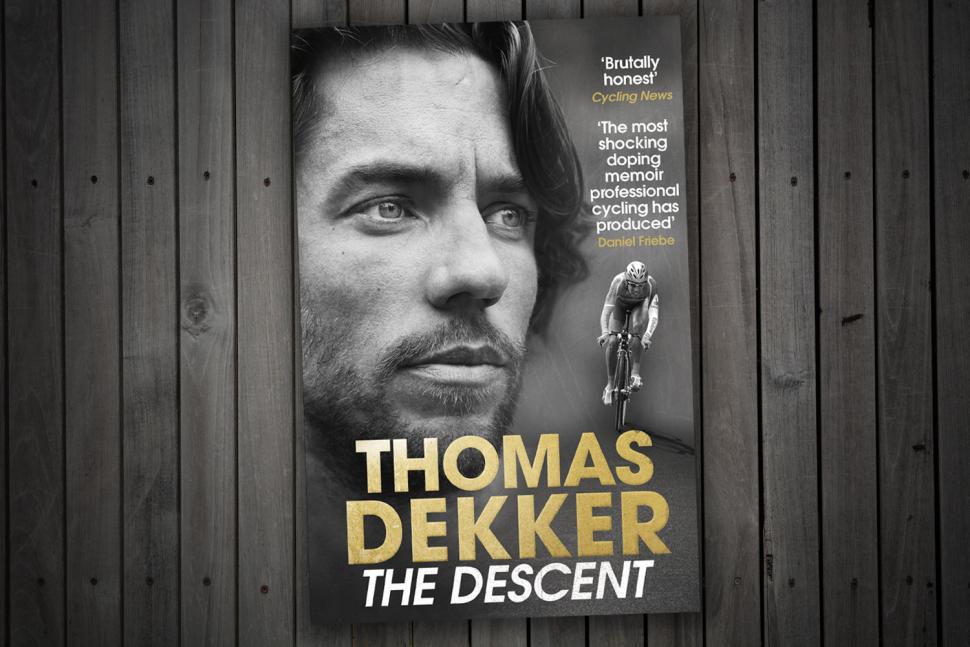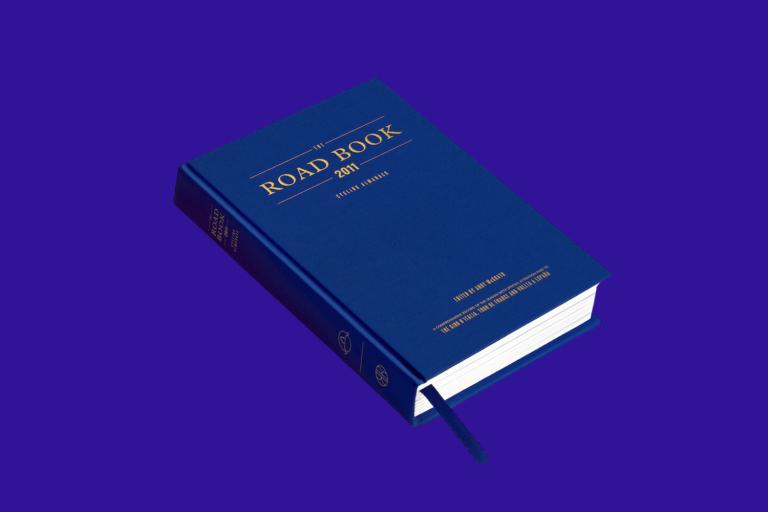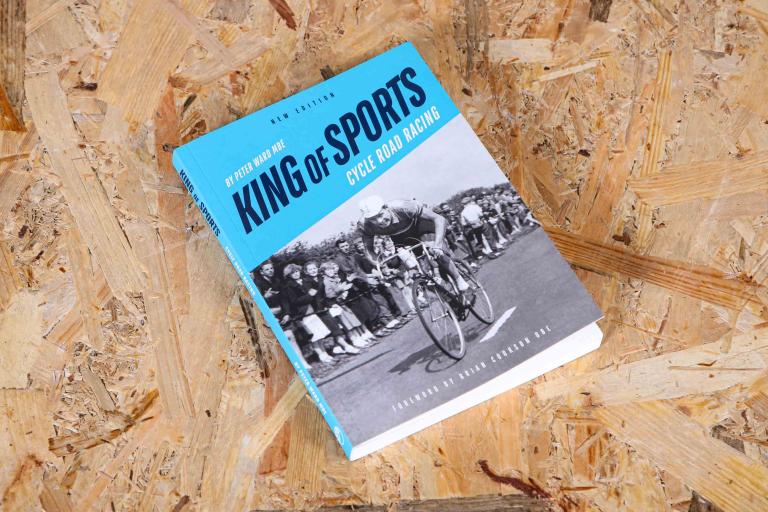- News
- Reviews
- Bikes
- Components
- Bar tape & grips
- Bottom brackets
- Brake & gear cables
- Brake & STI levers
- Brake pads & spares
- Brakes
- Cassettes & freewheels
- Chains
- Chainsets & chainrings
- Derailleurs - front
- Derailleurs - rear
- Forks
- Gear levers & shifters
- Groupsets
- Handlebars & extensions
- Headsets
- Hubs
- Inner tubes
- Pedals
- Quick releases & skewers
- Saddles
- Seatposts
- Stems
- Wheels
- Tyres
- Tubeless valves
- Accessories
- Accessories - misc
- Computer mounts
- Bags
- Bar ends
- Bike bags & cases
- Bottle cages
- Bottles
- Cameras
- Car racks
- Child seats
- Computers
- Glasses
- GPS units
- Helmets
- Lights - front
- Lights - rear
- Lights - sets
- Locks
- Mirrors
- Mudguards
- Racks
- Pumps & CO2 inflators
- Puncture kits
- Reflectives
- Smart watches
- Stands and racks
- Trailers
- Clothing
- Health, fitness and nutrition
- Tools and workshop
- Miscellaneous
- Buyers Guides
- Features
- Forum
- Recommends
- Podcast
review
 TheDescent.jpg
TheDescent.jpg£12.99
VERDICT:
Another reformed doper, another biography, another all-too-familiar tale taken to extremes
Weight:
250g
Contact:
At road.cc every product is thoroughly tested for as long as it takes to get a proper insight into how well it works. Our reviewers are experienced cyclists that we trust to be objective. While we strive to ensure that opinions expressed are backed up by facts, reviews are by their nature an informed opinion, not a definitive verdict. We don't intentionally try to break anything (except locks) but we do try to look for weak points in any design. The overall score is not just an average of the other scores: it reflects both a product's function and value – with value determined by how a product compares with items of similar spec, quality, and price.
What the road.cc scores meanGood scores are more common than bad, because fortunately good products are more common than bad.
- Exceptional
- Excellent
- Very Good
- Good
- Quite good
- Average
- Not so good
- Poor
- Bad
- Appalling
Here we have a handy guide on how to properly screw up a promising cycling career, should you want to do the same. It will help if you are immature, irresponsible, and mix with the wrong people – but making bad decisions will be more important. If you can lose all perspective and become big-headed because of early successes, that will make the inevitable disintegration even more comprehensive. The Descent offers a depressingly familiar but nonetheless fascinating story of yet another professional rider leaving the sport after breaking the rules – and, crucially, getting caught doing it.
I wish books like this didn't exist. I don't like proven cheats being financially rewarded for writing about their misdemeanours, and I am getting tired of them bringing attention of the wrong kind to cycling. I fear that such books do as much to perpetuate the doping culture in our sport as help to eradicate it, by inuring us to the practice so that we are no longer surprised at what goes on. Above all, I don't like the fact that there are now so many confessional books, with yet more to come. Probably.
Having said that, some of these tell-all biographies do make for compelling reading (such as Tyler Hamilton's), sometimes because they give us a unique insight into that side of the sport, or because the rider makes some startling revelations.
However, even when he has the opportunity to do so, Dekker does not implicate others: 'I'm sitting in a restaurant in Lucca having dinner with another cyclist who makes use of Fuentes's services. I won't mention his name – I reckon it's up to him to come clean.' That's Eufemiano Fuentes, who 'has a whole range of dope on offer'. Presumably that other rider has not admitted to doping or been caught yet, which suggests there might be more to come.
I thought that The Descent would be handicapped by appearing after so many other exposés: surely we have heard everything there is to know about the murkier side of pro cycling? And after all, Dekker was hardly the most successful rider in the peloton, so his name is not going to be a big draw.
> Two-year doping ban for Thomas Dekker
Despite my misgivings, The Descent actually turned out to offer something a bit different to other cycling biographies. It was co-written with Thijs Zonneveld, and later translated (from Dutch) by David Doherty; between them they have managed to give the impression of it being all Dekker's own words, with none of the awkward prose that can arise from translations.
Comprising 37 short chapters, the book is a punchy and undemanding read, often with unusually short sentences. Like this.
Dekker liked money and sex, and soon discovered that when he did well at cycling he would get both, so obviously he wanted to do whatever it took to continue with that success. Dekker often comes across as being rather unlikeable – and I fluctuated between feeling sympathy for him and hoping that he wouldn't get away with his extreme behaviour. But mostly the latter.
Unlike most other biographies, he goes into some revealing detail about money matters, telling us about some impressive salary negotiations that rewarded future promise more than past success: starting with a €5,000 salary as a rookie in 2003 (albeit with an additional €25,000 of prize money), he quickly pushes for more and negotiates €17,500 for the following year.
I reckon that Dekker's eventual downfall was assured when he chose Jacques Hanegraaf to be his agent. It is frightening to see the extent to which both parties pursue 'success' and are blind to the risks; Dekker seems to be grateful that it was Hanegraaf who explained to his parents 'that all the top riders are playing a grown-up game and that it is time for me to join in'.
'As the years went by I could feel it coming. I knew doping would cross my path. And when it happened I did not back away...The realisation that doping was necessary grew and grew. Without doping I was a good rider, but not good enough.' And so the point of no-return is passed.
Despite Dekker having already signed a deal with the Rabobank team for a salary of €100,000 for 2005 and 2006, Hanegraaf insists on trying to double that as soon as he arrived on the scene. He was unsuccessful on that occasion, but did later break the Rabobank contract and successfully negotiate a €400,000 salary – and of course he benefits as well thanks to his 10% commission.
If you thought that was getting ridiculous for a 21-year-old with modest success, you will be shocked by the €800,000 Hanegraaf negotiates for the 2007 and 2008 seasons. It gets better: when Rabobank find Dekker too toxic to handle midway through that agreement, he is offered 'my salary of €800,000 for 2008 paid as a lump sum and another €300,000 for 2009. Over a million just to fuck off. I take it.'
Even after their relationship has ended, Hanegraaf presents Dekker 'with a bill for over €90,000 in lost revenue. As he sees it, he still has a right to commission on the 18 month's salary I missed out on when Lotto fired me for doping.' The dispute ends up in court: it is the sort of case where you would not mind if neither party won, but it is Dekker who triumphs.
It is worth noting that according to Zonneveld some of those featured in the book, including Hanegraaf, 'repudiate Thomas's version of events.'
As an indication of how far out of favour he fell, Dekker's comeback after his two-year doping ban begins with him being grateful for the minimum wage offered by the Garmin team for 2012 (€35,000 at the time), because 'for a chance like this I would have ridden for free'. Amazingly, he manages to negotiate €75,000 for 2013 and €100,000 for 2014.
When the Garmin and Cannondale teams merge, Dekker finds himself surplus to requirements and without a contract – again. In an effort to prove his worth to prospective teams Dekker plans to take advantage of the new rules surrounding the Hour record. On the 25th of February 2015 he falls 271 metres short of Rohan Dennis's mark.
> Thomas Dekker misses out on UCI Hour record in Mexico
If the Hour record attempt had gone the other way (or if he had tackled it before Dennis), who knows what might have become of Dekker's career? As it is, the failure eventually led to him turning his back on cycling.
The other significant theme throughout the book is Dekker's pursuit of sex. Even after he falls in love with a lady called Linda, he says, 'For all her beauty, for all the good times we share, I can't stay faithful to her. The temptation of other women is too strong.'
He seems to spend an inordinate amount of time, energy, and money in pursuit of sex. I kept wondering when Linda would see sense and leave him – which she does eventually. During the ban, he writes: 'I cheat on Linda with an endless parade of women. Tourists, waitresses, whores, Spanish, Italian, Russian. Women from God knows where whose names I don't even know...Every woman who falls for my pick-up routine is like a race won; if only for a while it helps me believe that I still count for something.'
If you ever wanted the sort of undemanding book that you might buy at an airport to keep you engrossed during a flight, but you wanted it to be about your favourite sport, then this is it. Just don't expect it to have much coverage of actual cycling. This means that it could have appeal beyond cycling fans, but it would be a pity if this were their only impression of the sport.
Verdict
Another reformed doper, another biography, another all-too-familiar tale taken to extremes
road.cc test report
Make and model: The Descent by Thomas Dekker
Size tested: n/a
Tell us what the product is for
From Ebury Press:
'I have success, money, women. I've been lionised by the public and the media. The world is at my feet. I've spread my wings and here I am, soaring above everything and everyone. But in reality, the descent has already begun.'
Thomas Dekker was set to become one of pro cycling's superstars. He represented the Netherlands at the 2004 Summer Olympics in Athens and won the Tirreno–Adriatico in 2006, followed by the Tour de Romandie in 2007. But before long, he found himself buckling under the pressure to perform and sucked in by the lure of hedonistic highs. Now, after years of leading a double life, Dekker exposes the truth.
In The Descent, Dekker tells his shocking story of hotel room blood bags, shady rendezvous with dealers, partying with prostitutes at the Tour de France and the consequences of prolific EPO use. This is Dekker's journey from youthful idealism to a sordid path of excess and doping that lays bare pro-cycling's darkest secrets like never before. It is the story from a man who has nothing left to lose.
Tell us some more about the technical aspects of the product?
Title: The Descent
Author: Thomas Dekker
Publisher: Ebury Press
Date: 7/7/17
Format: Paperback
Pages: 218
ISBN: 9781785036583
Price: £12.99
Rate the product for performance:
7/10
Rate the product for value:
5/10
Fairly expensive for a paperback of this size, with only minor savings to be found on-line or with the e-book version
Tell us what you particularly liked about the product
A well-written and fast-moving story that really keeps your attention.
Tell us what you particularly disliked about the product
That it is the doping side of his career that will attract readers.
Did you enjoy using the product? Yes
Would you consider buying the product? I would prefer to beg, borrow, or steal.
Would you recommend the product to a friend? Yes
Use this box to explain your overall score
However much I dislike so much of what this book stands for, I can appreciate that it is an entertaining read that will hold your attention throughout.
About the tester
Age: 55
I usually ride: My best bike is:
I've been riding for: Over 20 years I ride: Every day I would class myself as: Expert
I regularly do the following types of riding: commuting, touring, club rides, sportives, general fitness riding
Latest Comments
- Spangly Shiny 2 sec ago
Of course there is, dependant on your age, always the possibility of the onset of Arthur's Eye Test. I'm thinking of the Osteo flavour. Definitely...
- TheOldie53 35 min 41 sec ago
Church attendance declining? Christ on a bike!
- dubwise 50 min 26 sec ago
That's some headline, Poggi didn't deny MVDP anything. He basically destroyed them all.
- mark1a 2 hours 13 min ago
I'm just someone on the internet with an opinion like everyone else here!...
- Secret_squirrel 2 hours 30 min ago
Why has such a fugly and massive rear light got such poor run times? My tiny Flare RT has 12hrs at 45 lmns.
- GMBasix 2 hours 57 min ago
Bronze = lasts longer than a cable tie
- Secret_squirrel 3 hours 6 min ago
You're missing the point. The cassette is unforgiveable when aimed at this market and the width of the tyres not much better. You shouldnt have...
- Secret_squirrel 3 hours 47 min ago
Its tragic but worth noting that this is just statistics playing out. Same happens at most mass participation sports events. The London Marathon...




Add new comment
6 comments
Easy reading book so perfect for the train reading with the kids bouncing around etc but not worth buying new.
In summary cocky kid has no self control and implodes.
Haven't read it yet but noticed it on the shelf in the library last time I was in ... checked online to see if it was still available or was borrowed and notice that Aberdeen City Libraries have it catalogued as "Adult Fiction"
https://aberdeencity.spydus.co.uk/cgi-bin/spydus.exe/FULL/OPAC/BIBENQ/28...
Would rather read a negative cancer diagnosis
<b>I wish books like this didn't exist. I don't like proven cheats being financially rewarded for writing about their misdemeanours, and I am getting tired of them bringing attention of the wrong kind to cycling. I fear that such books do as much to perpetuate the doping culture in our sport as help to eradicate it, by inuring us to the practice so that we are no longer surprised at what goes on. Above all, I don't like the fact that there are now so many confessional books, with yet more to come.</b>
I had similar thoughts in my local bookshop the other day. Millar's"Racing Through the Dark" ", Walsh's "7 Deadly Sins", Emma O'Reilly's book, Tyler Hamilton's, another few about Armstrong, "Bad Blood", Kimmage's "Rough Ride", Fotheringham's book on Festina, Matt Rendell's reprint of his Pantani book and Bjarne Riis' "confessional" took up the vast majority of space in the reasonably small cycling section. There was one copy each of Roche and Kelly's most recent autobiographies and a Dorling Kindersley bike maintenance tome, and for an Irish bookshop, there were no copies of John Barry's recent (and IMHO excellent) "Ascent" to be seen. Basically to a non-cycling fan browsing the section, the overwhelming theme was doping, and a quick look around other sports sections showed that despite the problems that, to give a couple of examples, rugby and athletics have, the pattern was not repeated- those sections were more focussed on biographies or technical skills books.
Now most of the books above were well written (in fact I have at one time or another bought nearly all of them) but the general impression is that only cycling is synonymous with drug cheats. It also means the really great writing like Jean Bobet's "Tomorrow We Ride" doesn't get the shelf space it deserves. Now I know we can't get away from the fact doping was such a big part of the history of our sport, and I'm not naive enough to think we are out of the woods yet, and of course many of the classic books will deal with doping in some manner or other but it is a bit depressing how the only sort of cycling writing that seems to sell is the stuff like Dekker's book and those listed above.
There are not many cycling biographies that can make you think "what the hell am i reading". All the doping, prostitutes, boozing.
The one thing that strikes you is that the old line about dopers are needed to manage the sport as they are the ones who know best what the sport is like... is total nonsense. Deckers book shows they were the ones guiding him
Worth a read
A world where the reformed doper is somehow a better person than the rider who had the resolve never to touch the stuff in the first place ...